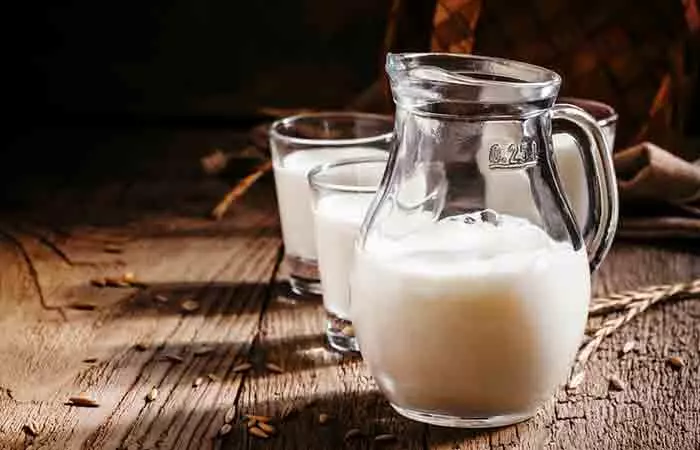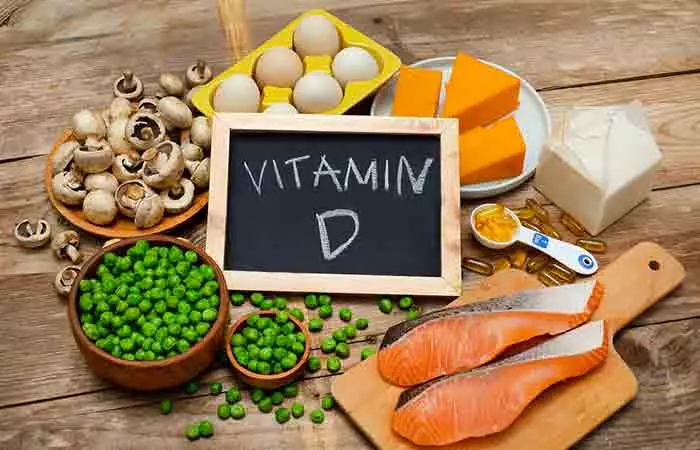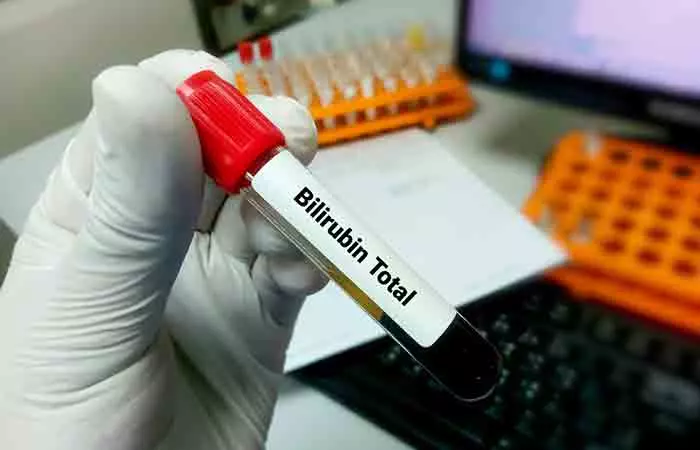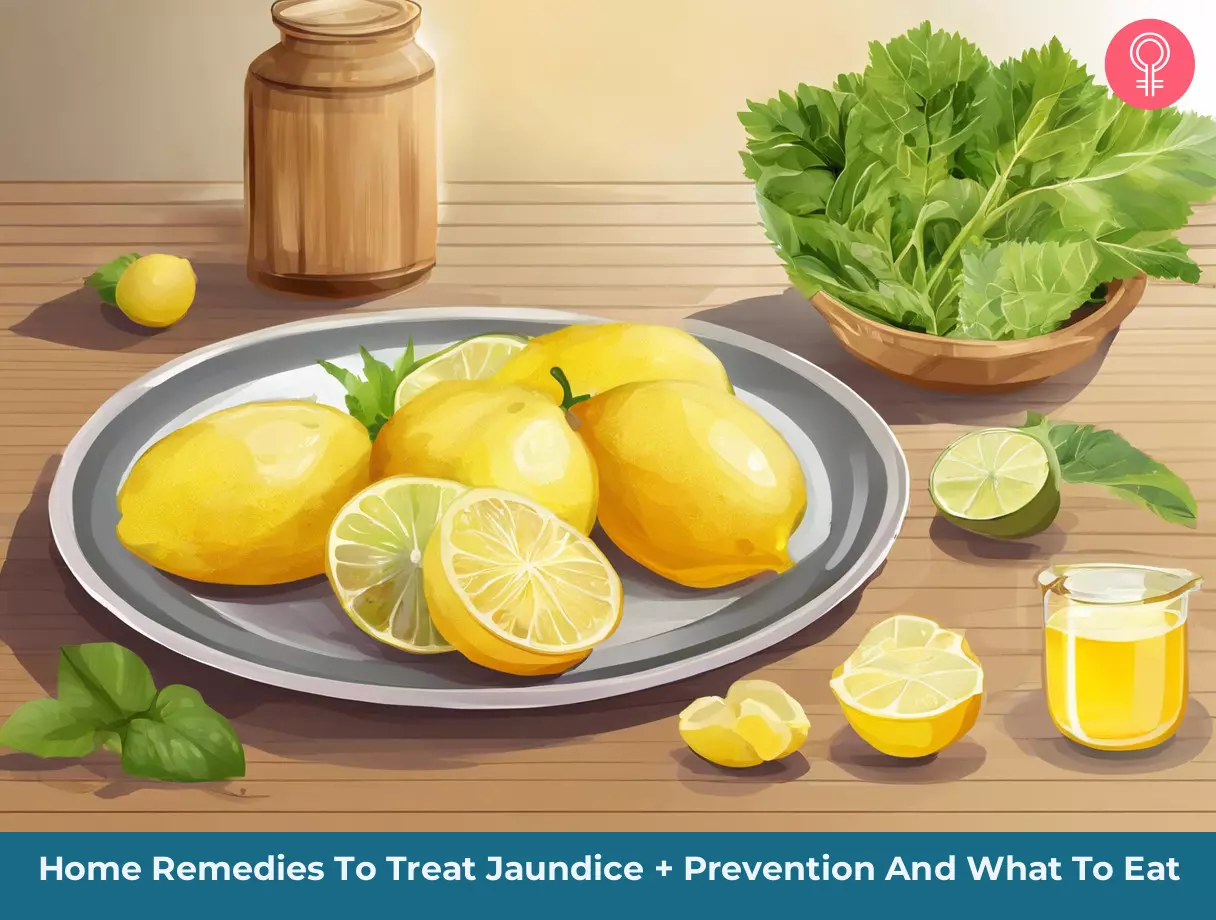Best Home Remedies For Jaundice
1. Sunlight
Phototherapy is a widely used treatment to treat jaundice in infants. However, data suggests exposure to sunlight is 6.5 times more effective than phototherapy while treating jaundice (1). It may be considered an alternative phototherapy source for the treatment of neonatal jaundice. However, more scientific studies are needed in this regard.
2. Sugarcane Juice
Sugarcane juice has anti-inflammatory, analgesic, antihyperglycemic, diuretic, andhepatoprotectivei A medication that protects against liver damage. NAC, MgIG, PPC, bicyclol, and silymarin are some examples. effects (2). This may help in strengthening the liver, provide proper hydration, and also help in managing symptoms of jaundice. You Will Need 1-2 glasses of sugarcane juice What You Have To Do Drink one to two glasses of sugarcane juice. How Often You Should Do This Consume this daily.
3. Essential Oils
a. Rosemary Essential Oil
Rosemary essential oil exhibits detoxifying and hepatoprotective effects (3). Hence, it may be suitable for promoting liver health. However, since its effects on jaundice management are not well-studied, more research is required to substantiate the claims. You Will Need
12 drops of rosemary oil 30 mL of any carrier oil (coconut or jojoba oil)
What You Have To Do How Often You Should Do This Do this once a day until you notice any visible improvement.
b. Lemon Essential Oil
Lemon essential oil is known for its protective action against liver injuries (4). It also exhibits antioxidant properties (5). These properties of lemon essential oil may help in promoting liver health. You Will Need
12 drops of lemon essential oil 30 mL of any carrier oil (coconut or olive oil)
What You Have To Do How Often You Should Do This Do this once a day.
4. Goat Milk
Goat milk is rich in many vital nutrients that are beneficial to both adults and infants (6). The antibodies in it may help manage jaundice symptoms to some extent. However, there isn’t enough scientific evidence to support this claim. Therefore, it’s best to consult a doctor before consuming milk. You Will Need 1 cup of goat milk What You Have To Do Consume a cup of goat milk. How Often You Should Do This Consume this daily.
5. Green Grape Juice
Green grapes exhibit antioxidant properties and contain fiber (7). This may help ease digestion, prevent liver damage during metabolism, and help with jaundice management. However, more research is required to establish the link between grape juice consumption and liver health. You Will Need 1 cup of green grape juice What You Have To Do How Often You Should Do This Do this daily.
6. Garlic
The allicin in garlic exhibits strong antioxidant properties (8). It may help in detoxifying the liver, speeding up the recovery from jaundice. However, evidence regarding the effect of garlic on liver health is lacking. Therefore, more research is warranted to prove these claims. You Will Need 3-4 cloves of minced garlic What You Have To Do How Often You Should Do This Do this daily.
7. Ginger
Ginger possesses powerful antioxidant and hypolipidemici A diverse array of medications that are used to reduce blood levels of lipids and lipoproteins, such as cholesterol. properties A study found that it might help reduce inflammation associated with Non-Alcoholic Fatty Liver Disease (9). This indicates its potential for preventing liver inflammation and promoting its health. However, more studies are warranted in this regard. You Will Need
1-2 inches of minced garlic 1 cup of water
What You Have To Do How Often You Should Do This Do this daily.
8. Lemon Juice
Animal studies found that the antioxidants in lemon juice may have hepatoprotective effects (4). While there isn’t enough evidence regarding its effects on jaundice management, the antioxidants in lemon may help manage liver health, which might help manage jaundice symptoms. However, more research is required in this regard. You Will Need
½ lemon 1 glass of water Honey
What You Have To Do How Often You Should Do This Drink this 3-4 times a day.
9. Vitamin D
Since newborn infants are hardly exposed to the sun, they are often deficient in vitamin D. According to a study published in the Journal of the Chinese Medical Association, jaundiced infants were observed to be deficient in vitamin D as compared to non-jaundiced infants (10). Breastfed infants need up to 400 IU of vitamin D daily. They can be given drops of this vitamin, or the breastfeeding mother can consume more vitamin D-rich foods like eggs, cheese, and fish. Adults can also benefit from this remedy if they are deficient in vitamin D.
10. Yogurt
Probiotic yogurt may help bring down the serum bilirubin levels by regulating bacterial colonies in the body (11). Infants may also benefit from probiotic supplementation. Hence, breastfeeding mothers may increase their intake of probiotic yogurt to aid the recovery of their babies. You Will Need 1 bowl of plain probiotic yogurt What You Have To Do Consume a bowl of plain probiotic yogurt daily. How Often You Should Do This Do this daily.
11. Tomatoes
Tomatoes contain a compound called lycopene (12). Lycopene is a strong antioxidant and animal studies found that it may help in the detoxification of the liver (13). You Will Need
2-3 tomatoes 1 cup of water
What You Have To Do How Often You Should Do This Do this once every day for a couple of weeks.
12. Amla
Amla is rich in vitamin C and many other nutrients (14). It has been used in Ayurveda for managing jaundice as its potent antioxidants help keep the liver healthy (15). You Will Need
2-3 amlas (Indian gooseberries) 1 cup of water Honey
What You Have To Do How Often You Should Do This Do this 2-3 times a day.
13. Barley Water
Barley exhibits diuretic and antioxidant properties (16). These properties may help in flushing out toxins as well as bilirubin through urine. Moreover, animal studies found that it may help enhance liver function, thereby reducing the risk of associated conditions, including jaundice (17). You Will Need
1 teaspoon of roasted barley seed powder 1 glass of water 1 teaspoon of honey
What You Have To Do How Often You Should Do This Do this daily.
14. Holy Basil
Basil (Ocimum sanctum) exhibits hepatoprotective activities (18). This property may be beneficial for the liver and may enhance its function. You Will Need A few holy basil leaves What You Have To Do How Often You Should Do This Do this 3 times a day.
15. Oregano
Oregano contains tocopherol and other powerful antioxidants (19). These antioxidants may help reduce oxidative stress, which is crucial for maintaining live health Therefore, it might help in managing liver-related issues like jaundice. However, more studies are required to support these claims. You Will Need
1-2 teaspoons of oregano 1 cup of water
What You Have To Do How Often You Should Do This Do this 3 times a day.
16. Papaya
Papaya leaves have been used in fold medicine for ages to treat jaundice (20). The leaves are rich sources of enzymes, like papain and chymopapain (21). These enzymes may support digestive health and treat liver problems. You Will Need
Papaya leaves Honey
What You Have To Do How Often You Should Do This Do this 2-3 times a day. Note: While these home remedies may provide relief, they cannot replace medical treatment. So, always see a healthcare provider when dealing with severe medical conditions like jaundice. Early medical intervention will help prevent potential complications associated with jaundice. Apart from these remedies, there are a few other tips you can follow to prevent jaundice. They are listed below.
Prevention Tips
Maintain a healthy weight and exercise daily. Avoid drinking alcohol. Manage your cholesterol levels. Maintain hygiene. Drink clean and boiled water and eat fresh food.
Foods To Avoid
Avoid these foods if you have jaundice:
Sugar Meat Dairy products Salt
These foods are quite hard to digest and end up aggravating the condition. Hence, steer clear of them to facilitate faster recovery from jaundice. Let us now look at the leading causes of jaundice in both adults and newborns.
Causes And Risk Factors For Jaundice
Jaundice occurs due to excess bilirubin in the body in both adults and infants. Bilirubin is a waste product that is produced as a result of the breakdown of your red blood cells. This compound is broken down and excreted through the stools (22). Prior to birth, babies have a different form of hemoglobin that starts to break down rapidly after they are born. This generates high levels of bilirubin that need to be excreted from their body. An underdeveloped liver cannot excrete bilirubin as fast as it is being produced, and hence, this might result in hyperbilirubinemia and jaundice in infants (23). Other causes and risk factors for jaundice in infants are (23):
Breastfeeding jaundice that occurs when the baby is not fed well in the first week of life. Breast milk jaundice that occurs when certain compounds in breast milk interfere with the breakdown of bilirubin. Medical conditions like sickle cell anemia, liver disease, and sepsis. Premature birth Bruising during birth Blood group incompatibility between the mother and the infant. Pris, a blogger, shared her newborn infant’s journey with jaundice. He was diagnosed soon after his birth with a high level of jaundice that increased after consuming breast milk. She writes, “My doctor was perturbed as to why the level increased with breastmilk. They came up with some explanations ranging from breastmilk being harder for baby to digest compared to formula milk to hubby having a different blood group from me, so baby might have a blood group that would have to “fight” the antibodies from 2 different blood groups, resulting in a higher jaundice level (i).”
The causes and risk factors for jaundice or high bilirubin levels in adults are (22):
Medical conditions like malaria, sickle cell anemia, cirrhosisi A severe form of liver disease when good liver tissue is permanently damaged and replaced by scar tissue. , cancer, gallstones, and autoimmune disorders. Certain medications Parasites like liver flukes Exposure to different types of viral hepatitis Hereditary conditions Alcohol consumption
The following are some of the signs and symptoms that surface with jaundice in adults and infants.
What Are The Signs And Symptoms Of Jaundice?
The signs and symptoms of jaundice include (22):
Pale stool Dark urine Itchy skin Vomiting Nausea Bleeding (in the rectum) Diarrhea Chills Fever Loss of appetite Weakness Weight loss Abdominal pains and headaches Swelling (legs and abdomen)
The signs of jaundice in infants include (23):
Drowsiness Poor feeding Pale stools Dark urine Yellow abdomen and limbs Weakness Inability to put on weight Irritability
Jaundice may be divided into three major types, depending on its cause.
Types Of Jaundice
Pre-Hepatic Jaundice: This type of jaundice results from an excessive breakdown of red blood cells, which overwhelms the liver’s ability to metabolize bilirubin (22).
Hepatocellular Jaundice: When your liver loses its ability to metabolize bilirubin, it results in hepatocellular jaundice. This type is often a result of liver dysfunction (22).
Post-Hepatic Jaundice: When there is an obstruction in the drainage of bilirubin from your body, it results in post-hepatic jaundice (22).
Let’s now take a look at the levels of bilirubin in adults and infants that determine the onset of jaundice.
Jaundice Level Chart
The most common way of testing the bilirubin levels is through a blood test, though an amniotic fluid test and a urine test can also give reliable results. The test measures the levels of both conjugated and unconjugated bilirubin. The normal bilirubin levels in adults range from 0.2 mg/dL to 1.2 mg/dL. Any levels above this are considered high, and the individual has an increased risk of developing jaundice. Newborns should not have bilirubin levels above 5 mg/dL. Infants whose bilirubin levels rise above this level after a few days of birth are also at the risk of developing jaundice. Pris shared that her son’s jaundice level was 18.5 which fell to 18 after formula feed and phototherapy. However, the level increased to 19.5 after he fed on breastmilk. She mentioned, “After one day of formula feed and phototherapy, the jaundice level fell to 18. However, this level was still too high for him to be discharged, so stay another day we had to (i).” As per this report, jaundice is more commonly seen in newborns and the elderly. In newborns, around 20% may develop jaundice due to an immature liver function. Among children, hepatitis A is the primary cause of jaundice, whereas, in elders, it is either due to bile duct block or liver damage. High bilirubin levels are not favored, and they must be kept in check to avoid health complications that may lead to jaundice. Consult a doctor as soon as symptoms arise as jaundice can be a presentation of many severe diseases like hepatitis, liver failure, and certain hematological conditions. Jaundice may take an ugly turn if the treatment is delayed for too long. Hence, it is best to start treatment while also following these remedies. Let us find out more about it in the next section.
Medical Treatment For Jaundice
Clinical treatment for jaundice depends on its underlying cause and is different for adults and children. For instance, for jaundice-induced pruritus, cholestyramine is often prescribed by doctors as the first line of treatment. They may also prescribe rifampicin, naltrexone, and sertraline as the second, third, and fourth line of treatment, respectively (24). However, you should avoid consuming these drugs on your own. In case of infants, the doctor may use conventional phototherapy or exchange transfusion for treatment, depending on the severity of neonatal jaundice (25). How long does it take for jaundice to resolve? The number of days jaundice may take to resolve depends on several factors, such as treatment, severity, and underlying causes. Generally, the symptoms of mild jaundice may resolve within two to three weeks in adults. How long does jaundice last in babies? Jaundice in babies, especially breast milk jaundice, may last anywhere from 3 to 12 weeks. Why are babies born with jaundice? Babies develop jaundice when the bilirubin levels in their bodies are more than the kidneys can flush out. High bilirubin could be a result of the rapid breakdown of red blood cells. What are the best foods for jaundice patients? A diet that includes fresh fruits, vegetables, fish, whole grains, and nuts may be great for those with jaundice. How long should your baby be exposed to the sun to treat jaundice? For treating jaundice in your baby, you may expose him/her to sunlight through a closed glass window for about 15 minutes, four times daily. Is banana good for jaundice? No, bananas are not recommended for individuals with jaundice. Bananas, especially when consumed with milk, may increase bilirubin levels in the body, which is counterproductive during jaundice (26). Can vitamin B12 deficiency cause jaundice? Yes, long-term jaundice may be a result of a vitamin B12 deficiency. However, it is rare (27). Is jaundice an emergency? Yes, jaundice is an emergency and should be treated by a professional healthcare provider right away. What turns yellow first with jaundice? Generally, the white of the eyes is the first part to turn yellow with jaundice.
Illustration: Home Remedies To Treat Jaundice + Prevention And What To Eat












